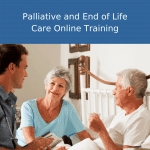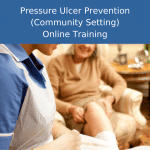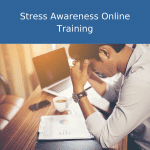Description
Allergen Awareness: Online Training
This allergen awareness online training course has been designed to comply with the new EU legislation law which came into force in December 2014.
This module will show you how to provide allergy information on pre-packed or unpackaged foods. It will cover what effects allergies may have to the body, considerations of allergies in the factory, How allergenic ingredients should be displayed on a label, Identifying allergens in example of dishes in the restaurant and How food businesses should be providing consumers with allergen information about the non-prepacked food they serve.
- Developed by professionals
- Accredited by The CPD Accreditation Group
- 100% online, learn at your own time and pace
- Translates into over 100 different languages
- Instant certificate downloaded
Who is the training for?
This training is suitable to all staff working within Adult Health and Social Care.
When will I get my certificate?
Once you have successfully passed our course you will be able to download and print your certificate immediately.
As this course has been accredited by the CPD Group your certificate will contain the CPD logo and unique reference number.
Course Outline: Allergen Awareness Online Training
Providing Allergy Information on Pre-packed or Unpackaged Foods:
- Understanding the legal requirements and best practices for providing clear and accurate allergy information on food packaging.
- Exploring different methods and formats for displaying allergen information, such as labels, tags, or online platforms.
- Learning how to effectively communicate allergy information to consumers to ensure their safety and informed food choices.
Effects of Allergies on the Body:
- Examining the physiological and immunological responses of the human body to allergens.
- Understanding the range of allergic reactions, from mild to severe, and the potential health risks they pose.
- Learning how to recognize and respond to allergic reactions, including anaphylaxis, in different settings.
Considerations of Allergies in the Factory:
- Exploring the importance of allergen management in food manufacturing facilities.
- Learning about cross-contamination risks and how to prevent allergen contamination during food processing and handling.
- Understanding the role of effective cleaning procedures, segregation measures, and staff training in ensuring allergen control.
Displaying Allergenic Ingredients on Labels:
- Understanding the regulatory requirements for declaring allergenic ingredients on food labels.
- Learning how to accurately identify and list allergens in ingredient lists, emphasizing clarity and consistency.
- Exploring the potential risks associated with hidden or undeclared allergenic ingredients and strategies to mitigate those risks.
Identifying Allergens in Restaurant Dishes:
- Developing skills to identify common allergens in dishes served in restaurants and food establishments.
- Learning about cross-contact risks during food preparation and ways to prevent allergen contamination.
- Exploring strategies for effectively communicating allergen information to customers and providing appropriate menu advice.
Providing Allergen Information for Non-prepacked Food:
- Understanding the legal obligations and best practices for food businesses in providing allergen information for non-prepacked or loose food items.
- Exploring different communication methods, such as menus, signage, oral communication, or online platforms, to inform consumers about allergens.
- Learning how to handle customer queries and special dietary requests related to allergens in a professional and responsible manner.
Key Points on Allergen Training
- This module will show you how to provide allergy information on pre-packed or unpackaged foods.
- It will cover what effects allergies may have to the body,
- Considerations of allergies in the factory,
- How allergenic ingredients should be displayed on a label,
- Identifying allergens in example of dishes in the restaurant and
- How food businesses should be providing consumers with allergen information about the non-prepacked food they serve.
Frequently Asked Questions (FAQs)
1. How do I get an allergen certificate?
To get an allergen certificate, you typically need to complete an allergen awareness training program and pass an assessment or examination.
Many training providers offer e-learning courses in allergen awareness, which, upon successful completion, provide you with a certificate as evidence of your training.
2. Who needs training in allergen awareness?
Anyone working in the food industry, such as restaurant staff, chefs, food handlers, and food service employees, should receive allergen awareness training.
It’s essential for those who handle food to understand allergens and how to prevent cross-contamination, ensuring the safety of customers with food allergies.
3. Is allergen training a legal requirement?
Yes, in the UK, allergen training is a legal requirement for food businesses.
The Food Information Regulations 2014 mandate that food handlers must be trained in allergen awareness to ensure that allergenic ingredients are properly labeled and cross-contamination is minimized.
Non-compliance can lead to serious consequences for businesses.
4. What is the basic allergen awareness training program?
The basic allergen awareness training program typically covers:
- Understanding common allergens and their sources.
- Recognizing the signs and symptoms of an allergic reaction.
- Preventing cross-contamination during food preparation.
- Proper allergen labeling and communication.
- Legal requirements and responsibilities for food businesses.
- Handling and serving allergenic foods safely.
This training equips individuals with the knowledge and skills needed to safely manage allergens in a food service or preparation setting.





